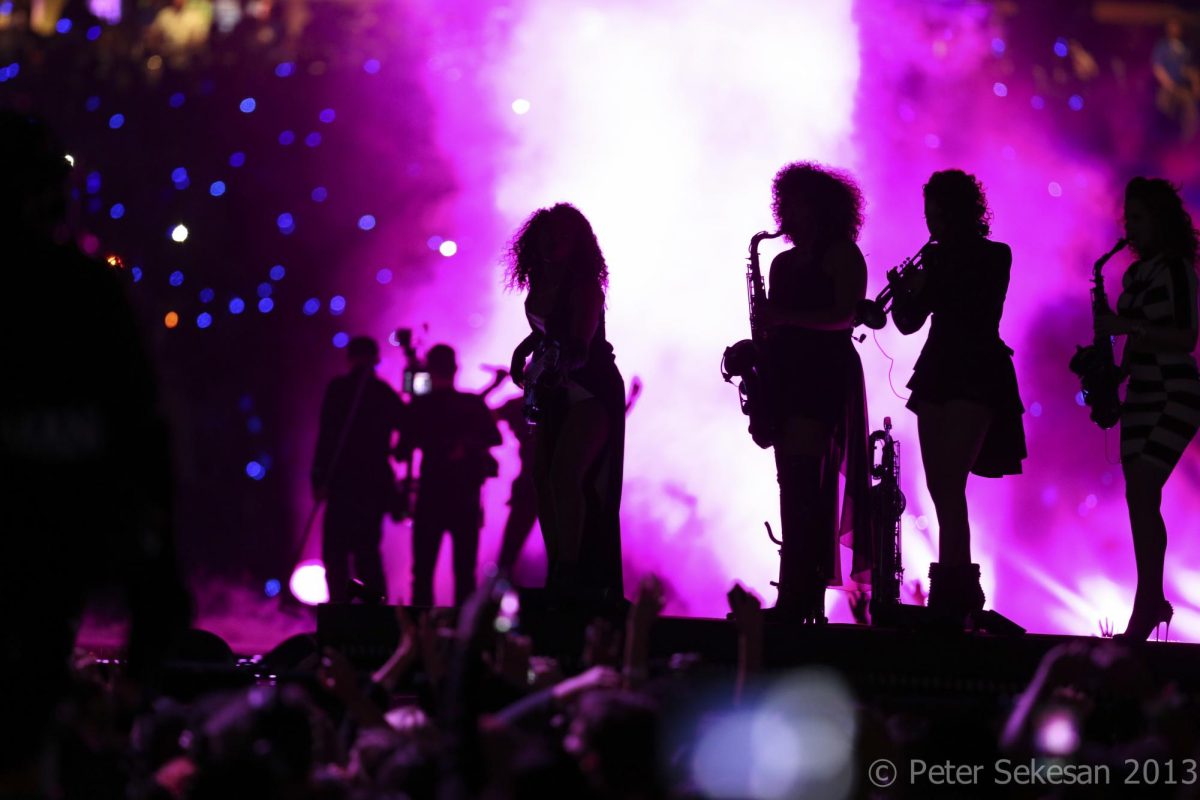A recent online feud between Megan Thee Stallion and Nicki Minaj has once again highlighted the toxicity of stan culture.
Stan culture has become a toxic phenomenon that normalizes and justifies problematic fan behavior. According to NPR, stan culture was created through a sense of connection and attachment people have towards their favorite celebrities or artists.
In this instance, on January 29, 2024, Nicki Minaj released a diss track, “Big Foot,” allegedly about Megan Thee Stallion and her experience of getting shot in the foot by rapper Tory Lanez in 2020. This is after Minaj reportedly took the lyrics from Stallion’s new single “HISS” personally. The lyrics state, “These h*** don’t be mad at Megan, these h*** mad at Megan’s Law.”
Megan’s Law was established in 1996 and requires convicted sex offenders to register for public identification. Many speculate Stallion’s verse references Kenneth Petty, Nicki Minaj’s husband, who pleaded guilty to attempted rape when he was a teenager and was arrested again in 2020 for failing to register as a sex offender in California.
Minaj’s fandom, “The Barbz,” has continued showing their full-blown support despite learning of her husband’s criminal past.
Stan culture has only grown with platforms like X, Instagram, TikTok, and other social media platforms that make it feasible to follow the lives of celebrities and artists through their content and posts. Thus fans feel increasingly connected to them.
However, this establishes a dangerous situation where parasocial relationships are formed. Stanford Daily describes parasocial relationships to “involve fans becoming overly attached to the content creators they watch, even going as far as viewing them as their friend despite never actually interacting with them.”
The term “stan” was introduced by Eminem when he released his 2000 song called Stan where a man who, after receiving no response from his idol, was driven to despair leading the word used to mean being very passionate or fixated. Stan is considered a combination of fan and stalker.
Despite its disturbing background, “stan” has become almost like a compliment that recognizes fans who devote themselves fully to their favorite celebrity on the internet.
Another example is R. Kelly. Kelly was a beloved R&B artist who was found guilty of multiple counts of child sexual abuse and sex trafficking. Despite being convicted of what many would consider to be heinous crimes, his fans showed no signs of giving up on him. Outside a Federal District Court in New York City, die-hard fans displayed their support when he was found guilty of all charges brought against him that led him to face a 30-year prison sentence.
As a result of the falsely perceived friendships felt by stans, they tend to feel a sense of ownership of their favorite artist’s life such as controlling their creative process, performance style, and audience based on their feedback. It goes as far as to control their personal life.
When Justin Bieber married Hailey Bieber, he received backlash from Selena Gomez stans who encouraged harassment toward his wife with messages about his past relationship with Gomez. He responded on an Instagram story stating, “This sad excuse of a human just encouraged people on video to literally go after my wife. … Telling people to say that my previous relationship was better so on and so [forth]. I just wanted to share this so people get an idea of what we face on a day-to-day.”
Frequently, artists find themselves having to set stricter boundaries with their stans to prevent intrusive behavior.
As a result of hate from Ariana Grande’s stans, known as the “Arianators”, Pete Davidson quit Instagram when the two started dating in May of 2018. He wrote on his Instagram story, “The internet is an evil place and it doesn’t make me feel good.” He went on to say in an additional post, “I just want you guys to know. No matter how hard the internet or anyone tries to make me kill myself. I won’t. I’m upset I even have to say this. To all those holding me down and seeing this for what it is — I see you and I love you.”
Ariana Grande responded, “I know you already know this but I feel I need to remind my fans to please be gentler with others. I really don’t endorse anything but forgiveness and positivity. I care deeply about Pete and his health. I’m asking you to please be gentler with others, even on the internet.”
These situations are by no means the first instances of stans turning toxic on the internet and spreading hateful messages which begs the question: Does social media enable hate content?
According to Joseph B. Walther, Presidential Chair in Technology and Society at the University of California, people posting hateful messages online are driven by receiving praise and appreciation from other like-minded individuals.
It doesn’t help that social media often provides identifiable information about a person by making it easy to find their religion, gender, sexuality, and race.
Social media amplifies this hateful behavior and toxic stan culture is a reflection of that. This phenomenon continues to thrive with a platform where people can become targets of such abuse without limited repercussions for those exhibiting such behavior.







